Is it Bad to Eat Protein Bars Every Day?
Author:
Reviewed by:
(Certified Nutritionist, S&C specialist, M.Sc.Eng. Biotechnology)
Unlock your full potential by engaging with our experts and community! Have questions about your fitness journey or looking for expert advice on weightlifting techniques? Don’t hesitate — leave a comment below and Camila Parente Santos will provide a personalized answer and insights to help you reach your goals.
Torokhtiy is reader-supported. Some links are affiliate links, and we may earn a commission at no extra cost to you. See our disclosure page for details.
Whether or not it’s ok to eat protein bars every day depends largely on what bar you’re eating, and what your goals are. In general, we recommend prioritizing whole foods and reserving protein bars for when you’re busy or on the go.
With that being said, there shouldn’t be any issues with eating a high-quality protein bar every day, especially if you’re mostly eating whole meals throughout the day.
Is it Bad to Eat Protein Bars Every Day? – If you’re eating a high-quality protein bar, there shouldn’t be any issues. However, regularly eating a bar rich in sugar, sodium, and saturated fat may be counterintuitive to your goals, and have a negative impact on your health.
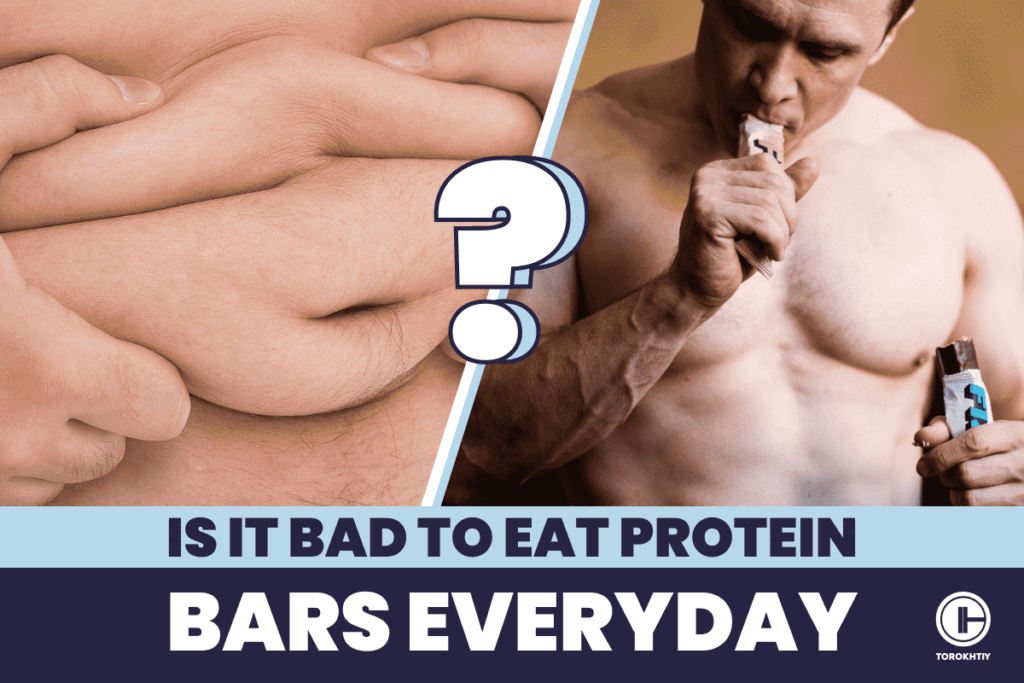
Is a Protein Bar Junk Food?
This depends largely on the composition of whatever bar you’re eating. There are dozens of different protein bars out there, which all have very different nutritional breakdowns. Some of these may be considered junk food, while other high-quality options wouldn’t be.
This largely comes down to several key factors, including:
- Protein
- Fiber
- Added Sugar
- Sodium
- Saturated Fats
If a bar is high in protein and fiber, while being low in added sugar , sodium, and saturated fats, it should not be considered junk food. Meanwhile, if the opposite is true, the bar is likely not as good for you.

With this being said, the difference between “junk food” and “healthy food” isn’t so black and white. While we always recommend putting high-quality whole foods first, is it bad to eat too many protein bars if the alternative is fast food or other low-quality options?
Still, we recommend aiming to choose the healthiest option whenever possible.
Is it Bad to Eat Protein Bars Every Day?
So, is it ok to eat protein bars every day?
Once again, this largely comes down to the composition of your bar, and the other meals you eat throughout the day. We don’t recommend eating bars high in added sugar, sodium, and saturated fat every day. However, bars that are low in these components, which instead prioritize protein and fiber, should be fine to eat regularly.
In general, we recommend saving protein bars for when you’re busy or on the go, and need a quick snack to help you hit your daily protein goals. Otherwise, you’re better off getting your protein from high-quality whole-food sources.
How to Choose a Good Protein Bar?
So, how do you find a high-quality bar that meets all our criteria? Overall, this comes down to understanding nutrition labels, and knowing what to look for when picking a bar. We’ll be covering the specifics in more depth below.
1. Consider a Specific Bar in Terms of its Composition
You should be able to gauge the quality of a protein bar based on its overall composition and macro breakdown. The first thing you should be looking for is protein content, and how it compares to the total calories, carbs, and fats of the bar.
As a rule of thumb, we recommend looking for bars with a minimum of 15g of protein (or 10g of protein for plant-based bars). Also, consider fiber content, which most people do not get nearly enough of despite its importance for overall health.
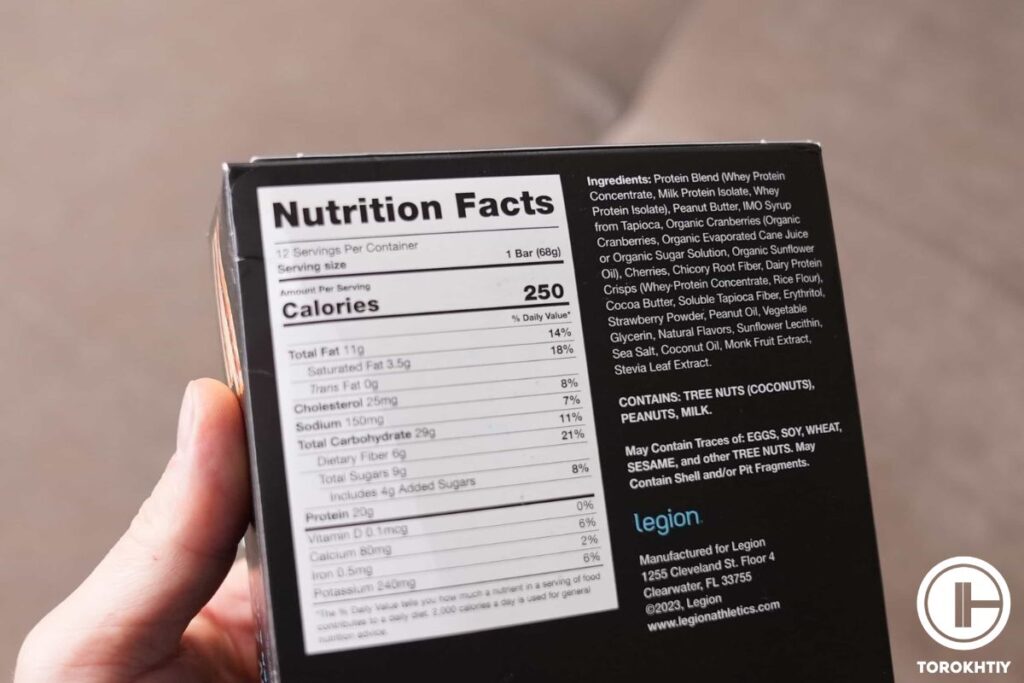
If they have a good amount of protein and fiber, then make sure the calories are in line with your goals. Especially if you’re cutting, try to find a bar that has less than 200-250 calories.
2. Give Preference to Bars from Reputable Brands
You’ll mainly want to choose a bar from a trustworthy brand as well. Protein bars made for general consumers will typically have slightly worse macro breakdowns. Instead, protein bars made by supplement companies will be targeted more towards athletes and will have better overall composition.
While there are some exceptions to this, looking for protein bars from companies that make other high-quality supplements is a great place to start.
3. Choose a Bar with Low Added Sugar
Once you’ve found a bar from a reputable brand that fits your protein and calorie needs, it’s time to start looking at the finer details.

Added sugar is associated with high-calorie diets that can lead to obesity, diabetes, and other health problems. With most people consuming more than enough added sugar already, there’s no need to add more to your diet through protein bars – especially if you’re planning on eating them every day.
Ideally, bars should have as close to 0g of added sugar as possible.
4. Prefer Lower Sodium Bars
Similarly to added sugar, most people already get plenty of sodium in their diets, making extra sodium through protein bars unnecessary. High-sodium diets are linked to health problems, including cardiovascular disease and high blood pressure.
So when you’re considering a protein bar make sure it won’t make you exceed your recommended daily value of sodium.
5. Be Aware of Saturated Fats
The final component we recommend avoiding in excess is saturated fat. It’s recommended that you limit your intake of saturated fats to 7-10% of your total daily calories. With this being said, it’s important that saturated fats be replaced by healthy fats in your diet, instead of empty calories like those from added sugar.
So, we recommend finding a bar that’s not only low in saturated fat but relatively high in “healthy fats” (ie. monounsaturated fats and polyunsaturated fats).
6. Pay Attention to Vitamins and Minerals
One final aspect we recommend prioritizing in a protein bar is vitamins and minerals. In general, most protein bars will be relatively low in micronutrients.
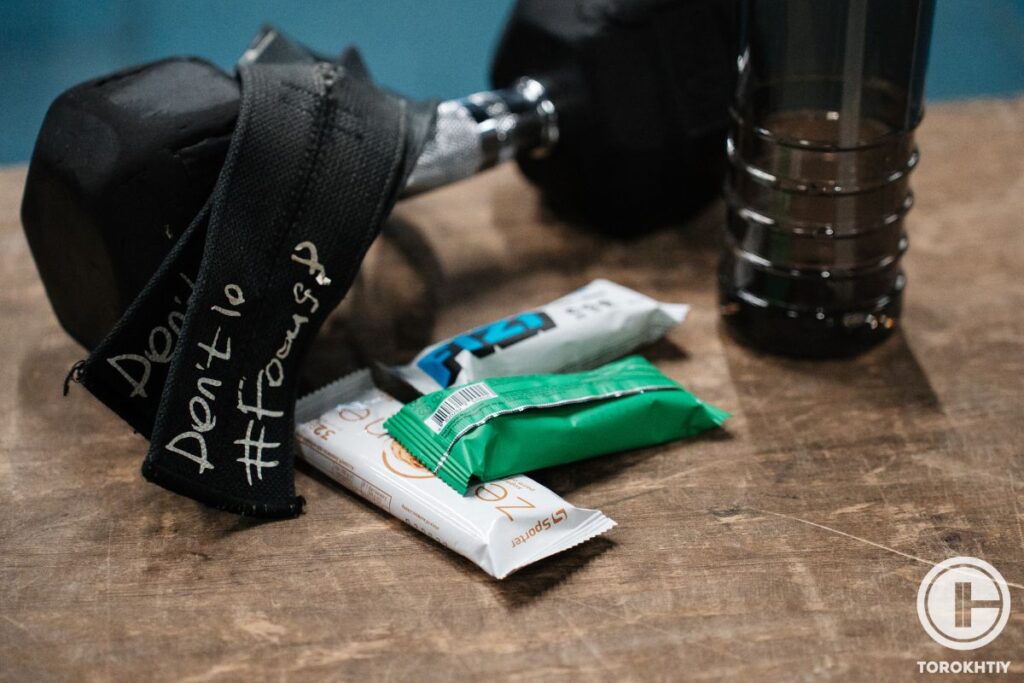
If you’re interested in prioritizing these, you may be better off looking for meal replacement bars, which tend to be higher in micronutrients, although they may also be slightly lower in protein.
How Many Protein Bars a Day is OK?
So, even if you’re choosing a high-quality option, how often should you eat protein bars?
The daily protein recommendation for muscle growth is 0.7-1g per pound of body weight. So, protein bars can be an easy and convenient way to help you reach your protein goals, especially when you’re on the go or just too busy to cook a full meal.
Still, even with a high-quality protein bar, we recommend limiting yourself to one a day. This will help you prioritize whole-food protein sources in your diet, which are typically much richer in micronutrients than protein bars. In some cases, 2+ bars may be justified, although we don’t recommend making this a habit.
Protein Bars by Legion
- Supplement Type: Protein Bars
- Best For: Building Muscles, Recovery
- Suitable for Vegans: No
- Added Sugar: 4g
- Price per Serving: ~$3.33
- Servings per Package: 12
- Recommended by Athletes: Gage Clark, Grant Tinsley
If you’re looking for a high-quality protein bar that ticks all the boxes, check out Legion’s protein bars.
It’s worth noting these are likely better for bulking, as they are a fairly high-calorie bar with 250 calories per serving. However, they have one of the best macro breakdowns on the market, with 20g of protein, and 7g of fiber per serving. It’s also low in sodium, saturated fats, and added sugar, making it a near-perfect bar.
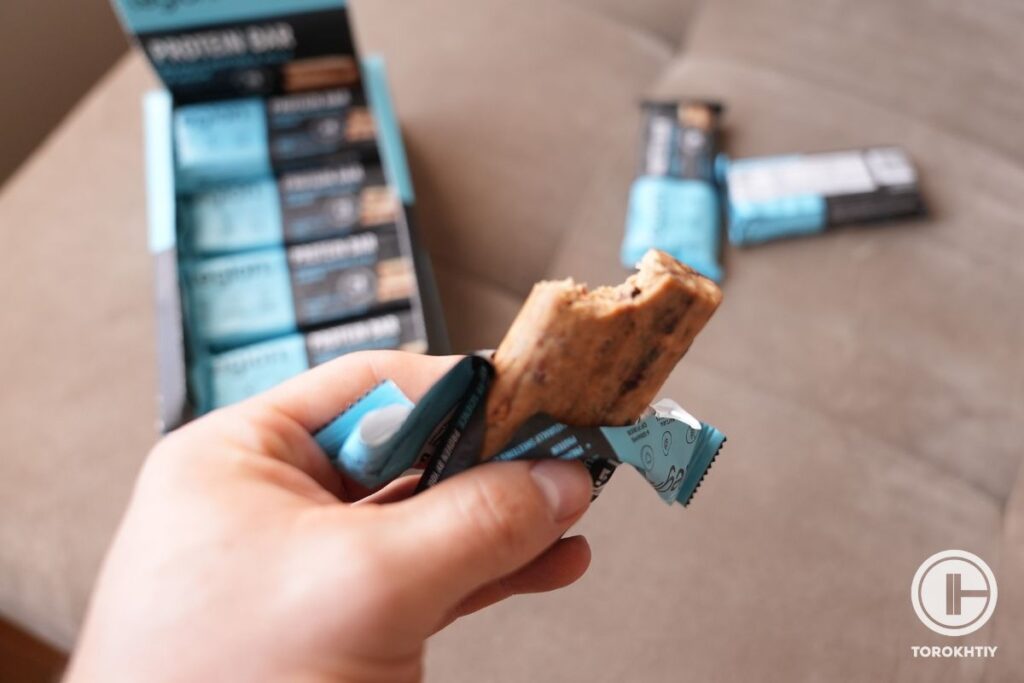
Of course, because of the high quality, this is a fairly expensive bar at ~$3.33 per serving. However, if you’re planning on eating these bars regularly, you can get up to 30% off by ordering 3-5 boxes at a time and subscribing to delivery every 30-90 days.
FAQ
What Happens if I Eat a Protein Bar Every Day?
Eating a protein bar every day may significantly boost your daily protein and calorie intake. So, depending on your training and overall protein intake, an added protein bar may help stimulate muscle growth.
It may also promote weight gain if it pushes you into a caloric surplus. So, make sure the rest of your diet and your goals are suited to adding in a daily protein bar.
Is it OK to Eat 2 Protein Bars Every Day?
In general, we recommend limiting yourself to one protein bar a day so you can prioritize more nutrient-dense, whole-food protein sources. However, if you’re very busy, or have high-calorie needs, eating multiple high-quality protein bars a day may be beneficial to you.
Will I Gain Weight if I Eat a Protein Bar Every Day?
Not necessarily. Eating protein bars every day will only make you gain weight if they contribute to an overall caloric surplus. So, as long as you’re eating fewer calories than you’re burning, you won’t gain weight eating protein bars every day. However, if you’re eating more calories than you’re burning, you will gain weight – with or without a protein bar.
Conclusion
Overall, if you’re eating a high-quality protein bar, there’s nothing wrong with eating one every day. With that being said, be sure you’re choosing a high-quality protein bar that fits in line with your goals.
If you’re looking for a great protein bar that ticks all of our boxes, check out Legion’s bars.
Do you eat protein bars every day? Let us know your thoughts in the comments below!
Also read:
- Transparent Labs Fat Burner Review
- Are Protein Bars Good For Breakfast?
- Do Protein Bars Give You Gas? Here’s What to Avoid
- How Many Protein Bars A Day? When is it Too Much?
- Do Protein Bars Make You Gain Weight?
- Why Do Protein Bars Taste Bad?
- Is It Bad To Eat Protein Bars Without Working Out?
References:
- The Nutrition Source, “Fiber”, Harvard T.H. Chan School of Public Health, https://www.hsph.harvard.edu/nutritionsource/carbohydrates/fiber/ (Accessed May 6, 2024)
- The Nutrition Source, “Added Sugar”, Harvard T.H. Chan School of Public Health, https://www.hsph.harvard.edu/nutritionsource/carbohydrates/added-sugar-in-the-diet/ (Accessed May 6, 2024)
- The Nutrition Source, “Salt and Sodium”, Harvard T.H. Chan School of Public Health, https://www.hsph.harvard.edu/nutritionsource/salt-and-sodium/ (Accessed May 6, 2024)
- The Nutrition Source, “Types of Fat”, Harvard T.H. Chan School of Public Health, https://www.hsph.harvard.edu/nutritionsource/what-should-you-eat/fats-and-cholesterol/types-of-fat/ (Accessed May 6, 2024)
- Everson A. Nunes, et. al, “Systematic review and meta-analysis of protein intake to support muscle mass and function in healthy adults,” Journal of Cachexia, Sarcopenia and Muscle, 13, 795–810, (2022)
- Photos made by Torokhtiy Media Team.
Why Trust Us?
With over 20 years in Olympic weightlifting, strength training, nutrition coaching, and general fitness our team does its best to provide the audience with ultimate support and meet the needs and requirements of advanced athletes and professional lifters, as well as people who strive to open new opportunities and develop their physical capabilities with us.
By trusting the recommendations of our certified experts in coaching, nutrition, and sports training programming, as well as scientific consultants, and physiotherapists, we provide you with thorough, well-considered, and scientifically proven content. All the information given in the articles concerning workout programming, separate exercises, and athletic performance, in general, is based on verified data.
The product testing process is described in more detail here.
Camila has worked as a Nutritionist for 7 years. In addition to being a nutritionist, she is an amateur weightlifting athlete for 2 years. Camila has experience at Flamengo’s football base and in a food supplement company and currently provides services at a clinic. At the moment she is coursing a postgraduate study in Sports Nutrition.
Reviewed by: Jacek Szymanowski
Certified Nutritionist,
M.Sc.Eng. Biotechnology
Performance architect,
Strength and Conditioning Specialist
With over 30 years of fighting experience, specialization in nutrition coaching for athletes, and expertise in metabolic health and dietary strategies, Jacek offers a comprehensive approach to optimizing your performance and well-being. Backed by a Master of Science degree in Biotechnology, Jacek remains at the forefront of scientific advancements, ensuring that his coaching is always evidence-based and up-to-date.




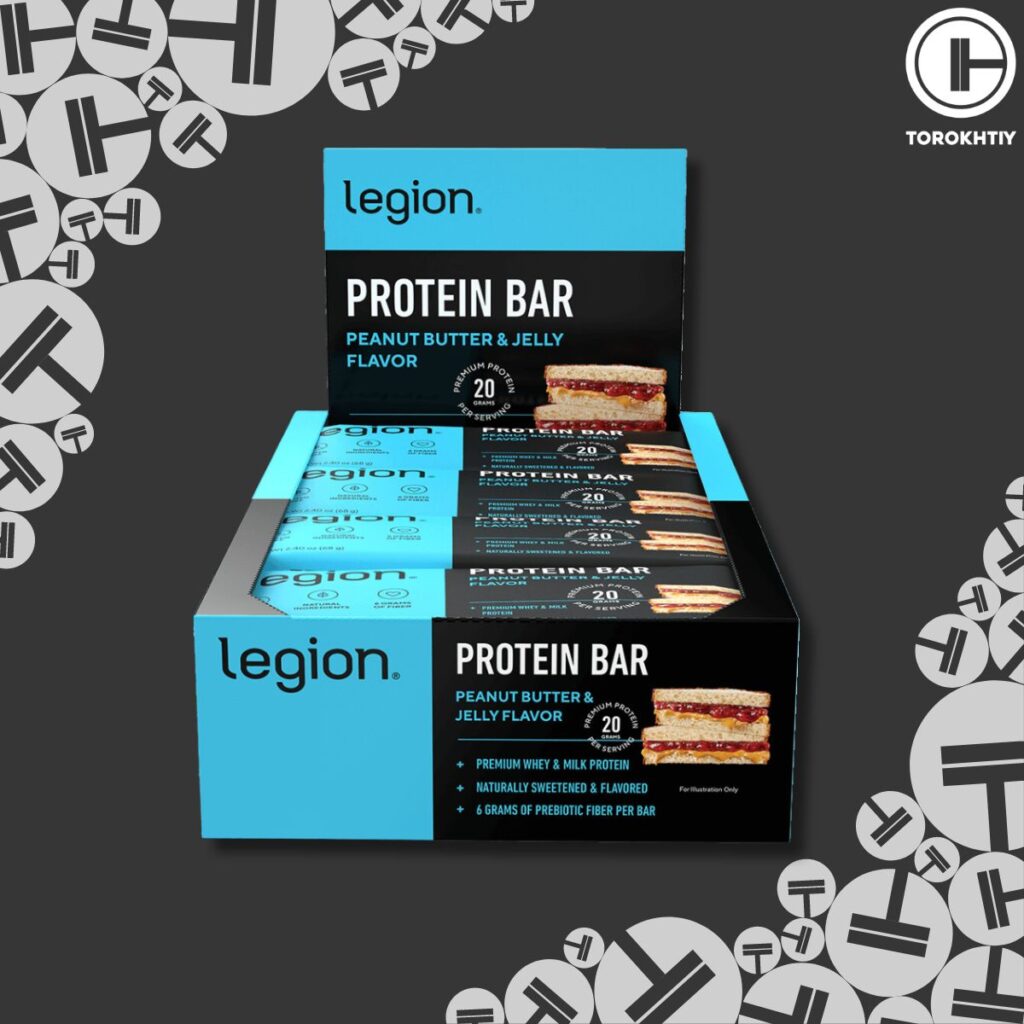
Still have questions after reading our article? Unlock your full potential by engaging with our experts and community! Don’t hesitate — leave a comment below and Camila Parente Santos will provide a personalized answer and insights to help you reach your goals.